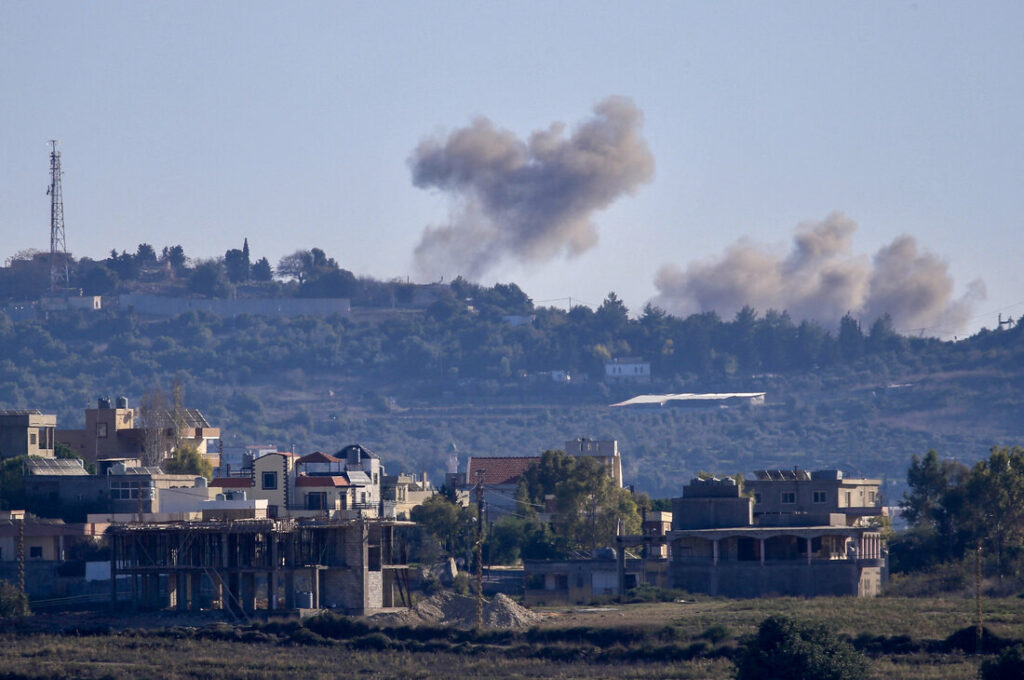The situation between Lebanon and Israel since 7 October is intolerable and presents an unacceptable risk of a broader regional escalation, the EU said in a joint statement on Thursday with other countries. This is in nobody's interest, neither the people of Israel nor the people of Lebanon.
The statement was issued by the EU, Australia, Canada, France, Germany, Italy, Japan, Qatar, Saudi Arabia, United Arab Emirates, the United Kingdom, and the United States. “It is time to conclude a diplomatic settlement that enables civilians on both sides of the border to return to their homes in safety.”
But diplomacy cannot succeed as the conflict escalates, the statement says. The signatories therefore call for an immediate 21-day ceasefire across the Lebanon-Israel border to provide space for diplomacy towards the conclusion of a diplomatic settlement consistent with UNSCR 1701, and the implementation of UNSCR 2735 regarding a ceasefire in Gaza.
Give space to diplomacy
“We are prepared to fully support all diplomatic efforts to conclude an agreement between Lebanon and Israel within this period, building on efforts over the last months, that ends this crisis altogether,” the statement ends.
American sources sounded optimistic and hinted that a decision on a ceasefire could come “within hours.” Both Israel’s envoy to the UN and Lebanon’s Prime Minister reaffirmed their governments’ commitment to resolution 1701, which ended the 2006 Israeli-Hezbollah war. However, until now mediation efforts on a political solution led by the US and France have been fruitless.
Tension in the Middle East reached a critical level directly after 7 October last year, when Hezbollah in Lebanon started firing rockets against Israel in solidarity with Hamas. Hezbollah’s leader Hassan Nasrallah has said that it will stop the strikes if the war in Gaza would end. Efforts to agree on a sustainable ceasefire - hostage deal have failed until now, with both sides blaming each-other.
As strikes escalate on both sides of the border, Lebanon and Israel are on the brink of full-scale war with devastating consequences for both countries. The call for an immediate ceasefire in the north aims to prevent the war in Gaza spilling over into the whole region. It would give mediators time to facilitate an agreement on implementing the UN Security Council resolution 1701.
The resolution was never implemented by Lebanon. Hezbollah, an Iran-backed militia which is designated a terrorist organisation by the EU, has essentially become a state within Lebanon. It was obliged to withdraw from the south of the country, to be replaced by Lebanese government forces. The EU has committed to train government forces for this task.
Israel on its part has withdrawn from Lebanon (besides a contested strip of land) but now threatens a ground offensive against Hezbollah, whose military infrastructure has been significantly destroyed by the Israeli air force in the past week. But Hezbollah is believed to still have drones and missiles, including precise and long-range missiles, to hit targets deep into Israel in response.
Related News
- Belgium warns against travel to Lebanon
- 'Glorifying terrorism': Team Fouad Ahidar files complaint against Bouchez
- Belgian politicians denounce Israeli strikes on Lebanon as thousands leave the country
At his bilateral meeting this week with the Iranian foreign minister in the margins of the UN General Assembly, EU’s foreign policy chief Josep Borrell called on Iran to use its influence to avoid further escalation and called for the “full and symmetric implementation” of resolution 1701.
Borrell also stressed the EU's strong condemnation of the recent transfer of Iranian-made ballistic missiles to Russia. It was not clear if he also raised the issue of Iran’s weapons deliveries to Hezbollah, which has made it the most heavily armed non-state militia in the world, despite an arms embargo on Lebanon.
High Representative Borrell condemned both Russia’s aggression against Ukraine and Israel’s “indiscriminate” strikes against Hezbollah operatives and its military arsenal hidden in civilian buildings. Israel has warned the civilian population in advance which caused thousands of them to leave their homes. When questioned by The Brussels Times, Borrell's spokesperson argued that the High Representative has been consistent in his approach to both conflicts.

